

We may earn revenue from the products available on this page and participate in affiliate programs. Learn More ›
Home Advice You Can Trust
Tips, tricks & ideas for a better home and yard, delivered to your inbox daily.
By signing up you agree to our Terms of Service and Privacy Policy.
Take It or Leave It

Let’s face it: Disposable items have spoiled us. From cleaning wipes to plastic straws, folks are accustomed to using items once and then tossing them, no matter the environmental cost. Plenty of us pay cold hard cash in exchange for convenience, even when that convenience borders on the ridiculous—the Whole Foods Pre-Peeled Orange Wars of 2016 come to mind.
Fortunately, it looks like future generations may eschew today’s throw-away culture. As much as we may aspire to repurpose our way to eco-nirvana, though, many people lack the time or energy to lead an entirely zero-waste, buy-nothing existence. Enter local curbside cleanup days, which offer us the opportunity to both unload unwanted refuse and collect potential riches.
Whether you’re discarding the fruits of a spring decluttering session, looking for hidden gems to restore and resell, or simply doing some curbside browsing for your own home, there are many ways to take advantage of your town’s cleanup day.
Don’t Miss It!
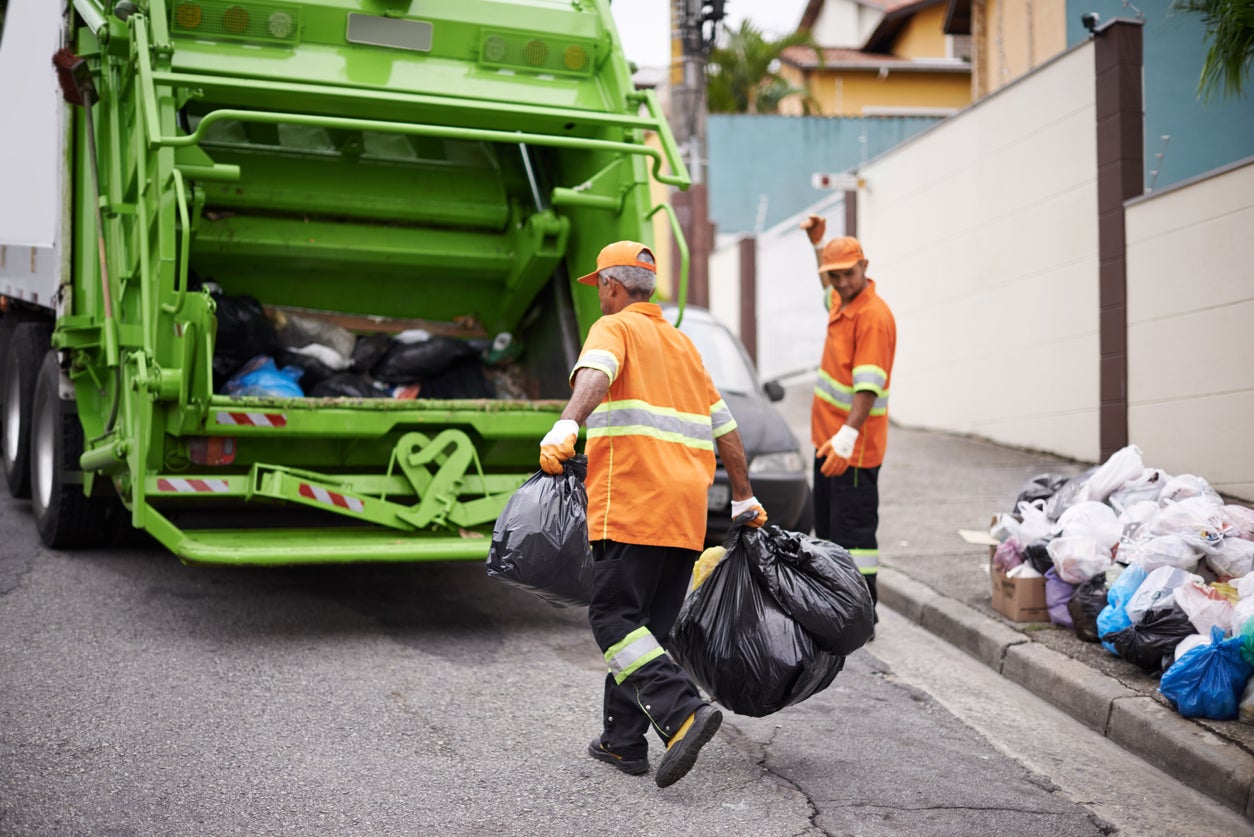
The first order of business is finding out when your town’s bulk trash day takes place. In some municipalities, there’s one every month. Others host an annual or biannual event, usually in the spring and/or fall. If your locality falls into the latter camp, you’ll especially want to mark the dates on your calendar. Also note that in larger cities, curbside cleanup days may be scheduled by neighborhood. Just because a friend across town is jettisoning her Jacuzzi doesn’t necessarily mean you should haul your snow tires to the street on that same day.
Know What You Can (and Can’t) Put Out

If “when” is the most important info to know about bulk trash day, the “what” comes in a close second. Regulations regarding the items your town will take vary widely. There are some things that are generally acceptable (furniture, lamps, carpet, swing sets, bicycles), some that are generally prohibited (hazardous chemicals, electronics, propane tanks, concrete), and quite a few that occupy a middle ground—allowed in some areas but verboten in others (batteries, small appliances, tires, yard waste). Don’t just assume someone else will come along and take care of it; it’s your responsibility as a resident to do the right thing with your refuse.
Declutter and Sort Beforehand

Make the most of your area’s cleanup day by preparing for it well in advance. Tackle the attic and basement, get into that chaotic garage, and take stock of what you’ve got. Organize everything into separate bins, bags, or—for really bulky belongings—piles: Keep, Donate, and Discard. Set aside any items in that last category that require a separate trip to a recycling center or hazardous waste disposal site, and then kick what’s left to the curb.
Adopt a Depression Mindset
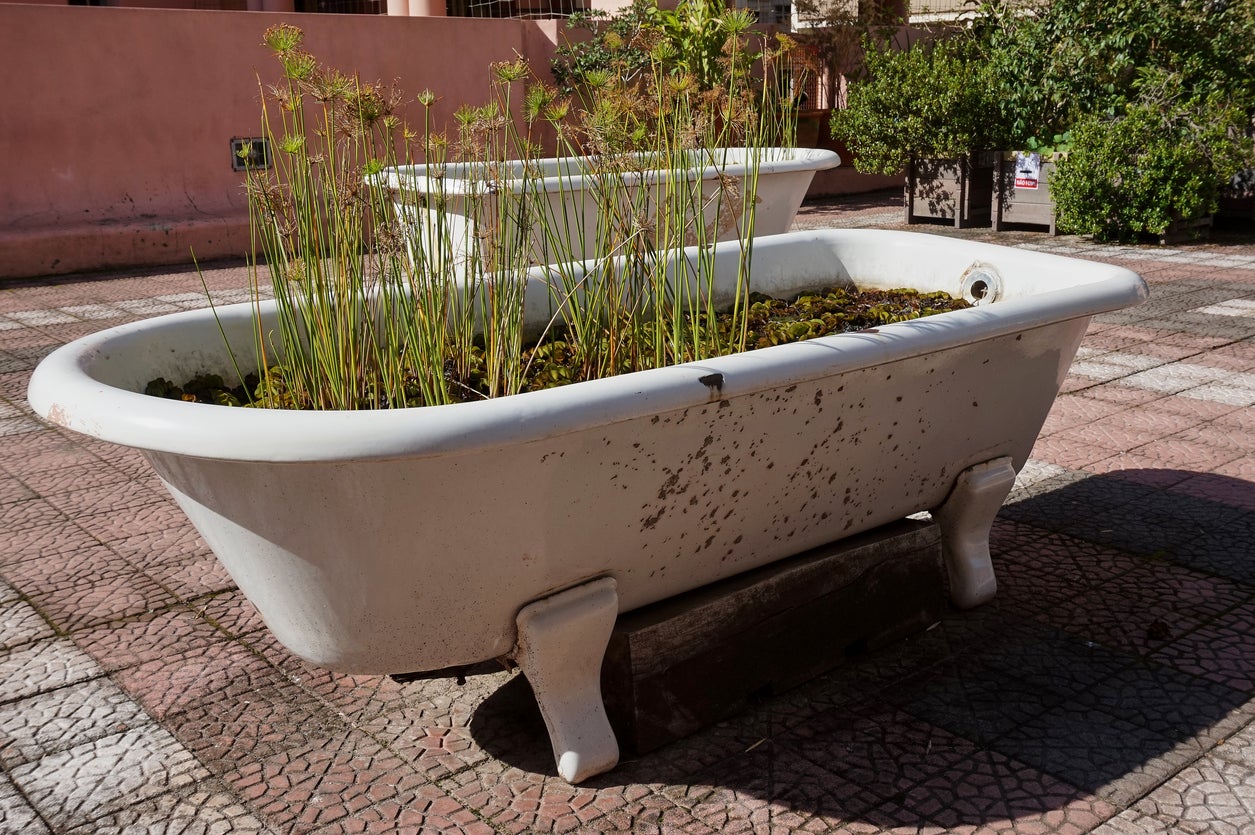
The Great Depression, that is. Those who have weathered tough economic times are experts at using up and making do. Today, many people find it a fun challenge to imagine new purposes for ordinary objects that would otherwise be bound for the landfill. For inspiration, check out websites that promote the Zero Waste and Buy Nothing movements, then work to incorporate the 5 R’s of waste management into your everyday life.
Give It Away
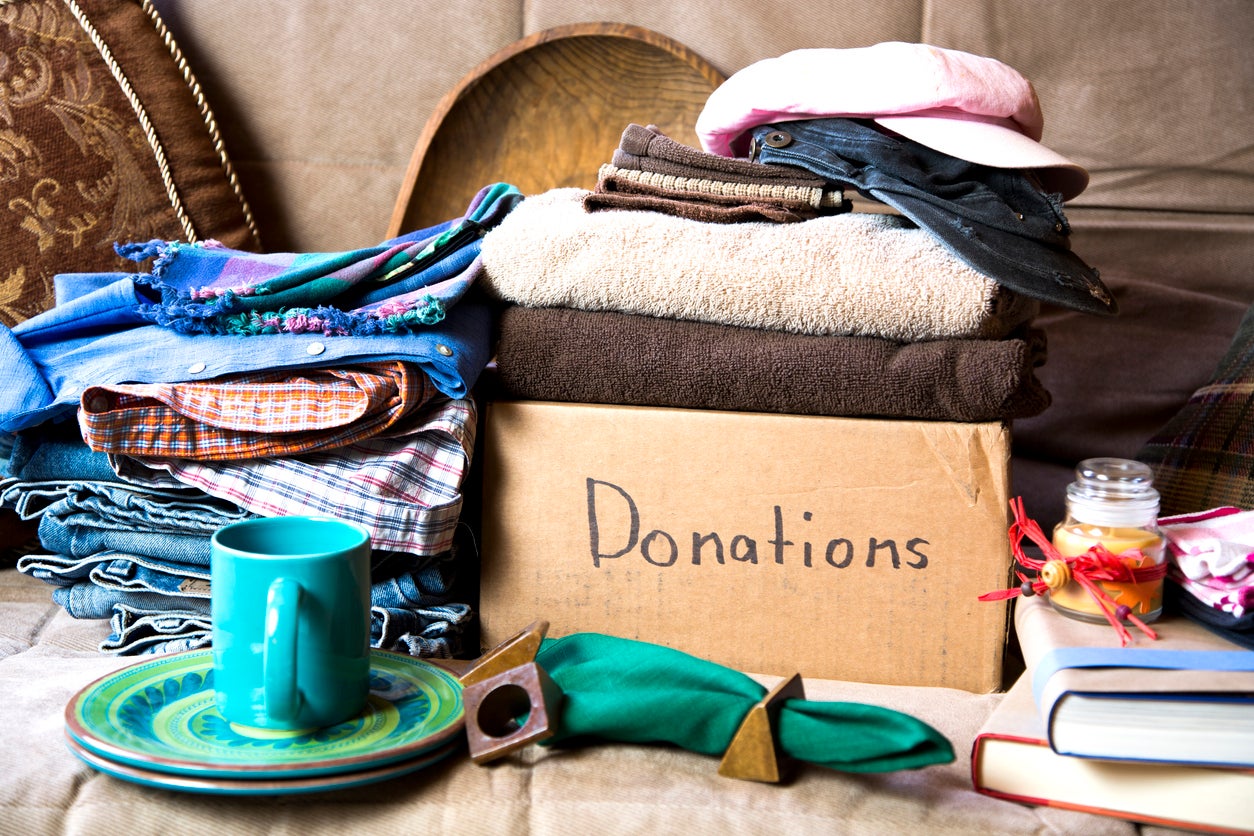
You’ve racked your brain but simply can’t come up with a clever use for all those plastic bags and shipping pallets? Good news: There’s bound to be someone out there who can. Put your trash directly into the hands of those who will treasure it by posting on Craigslist, Facebook Buy Nothing groups, Nextdoor, or Freecycle. Just be sure to brush up on free-stuff etiquette first.
You can also donate certain things to thrift stores and other charities. Many organizations offer pickup services, which is a boon to anyone with limited mobility or without access to transportation.
Host a Neighborhood Swap Meet…

In many parts of the country, the first few warm spring days see stir-crazy, cabin-feverish folks walking around the neighborhood, working in their yards, or just sitting on their porches or stoops to soak up some unfamiliar sunshine. What better time to get everyone together for a good old-fashioned neighborhood swap meet? Pick a weekend and a gathering place where people can “shop” others’ cast-off items. It’s a good idea to set some ground rules too. And just for fun, why not make it a potluck while you’re at it?
…or a Neighborhood Yard Sale
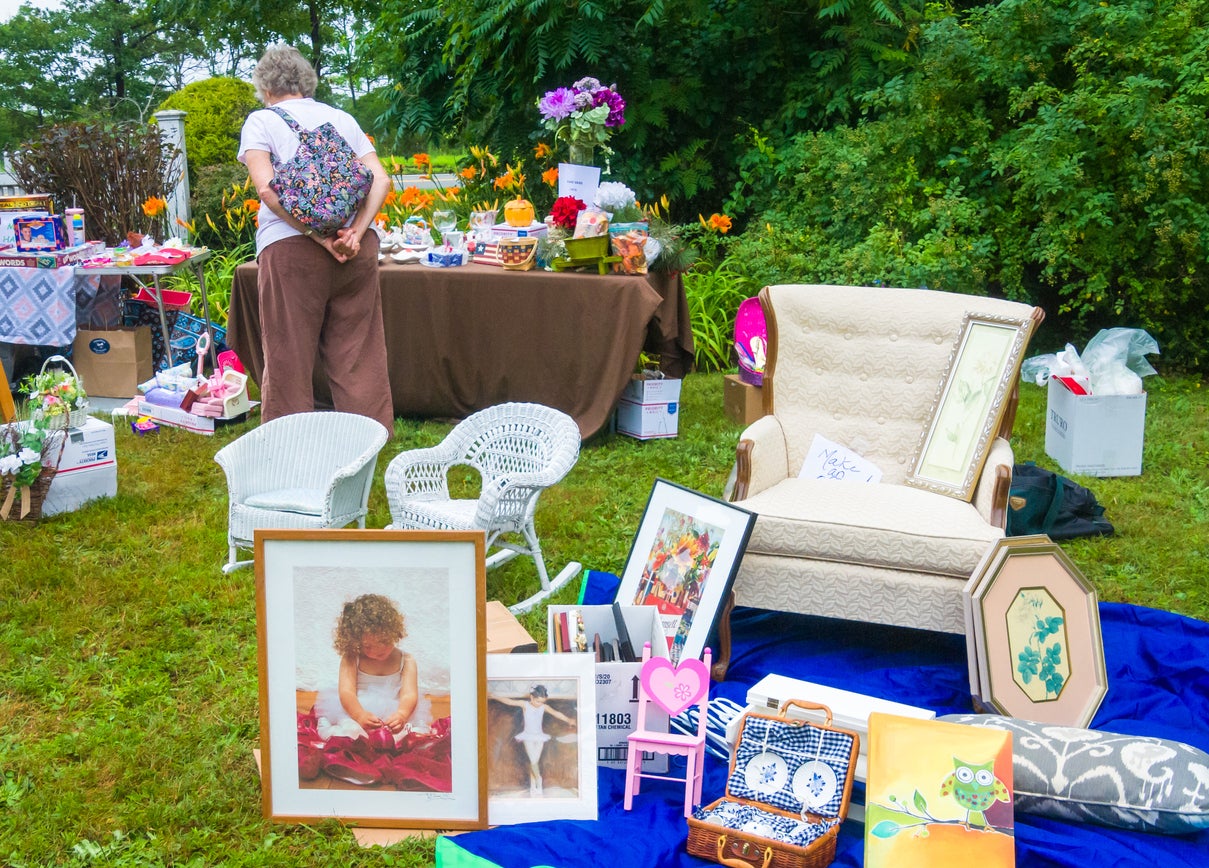
Similarly, consider holding a community yard sale a week or two before your town’s curbside cleanup day. Multi-household sales tend to get a lot of traffic, so everyone will benefit by combining forces. If your neighbors are civic-minded, you could pool the money to benefit everyone—perhaps to fund a block party or to furnish a neighborhood pocket park with perennials and a picnic table? A little planning will go a long way toward making your sale a success, as will a few simple guidelines for sellers.
Follow Proper Procedures

To ensure that what you put out doesn’t break, leak, scatter, tempt scavenging animals, or cause any other hassle, follow your city’s guidelines for handling waste and discards. For example, some municipalities ask that residents remove doors from refrigerators and other large appliances.
Understand and abide by any regulations, such as weight restrictions or maximum numbers of items. Don’t try to sneak unacceptable types of trash in with the allowable ones. Find out what time of day you can begin piling old possessions on your curb. Scrappers on the lookout for copper wiring are prone to tear apart appliances like air conditioners, leaving disarray in their wake. Wait until the last minute to discard such appliances.
Be Prepared for Pickers
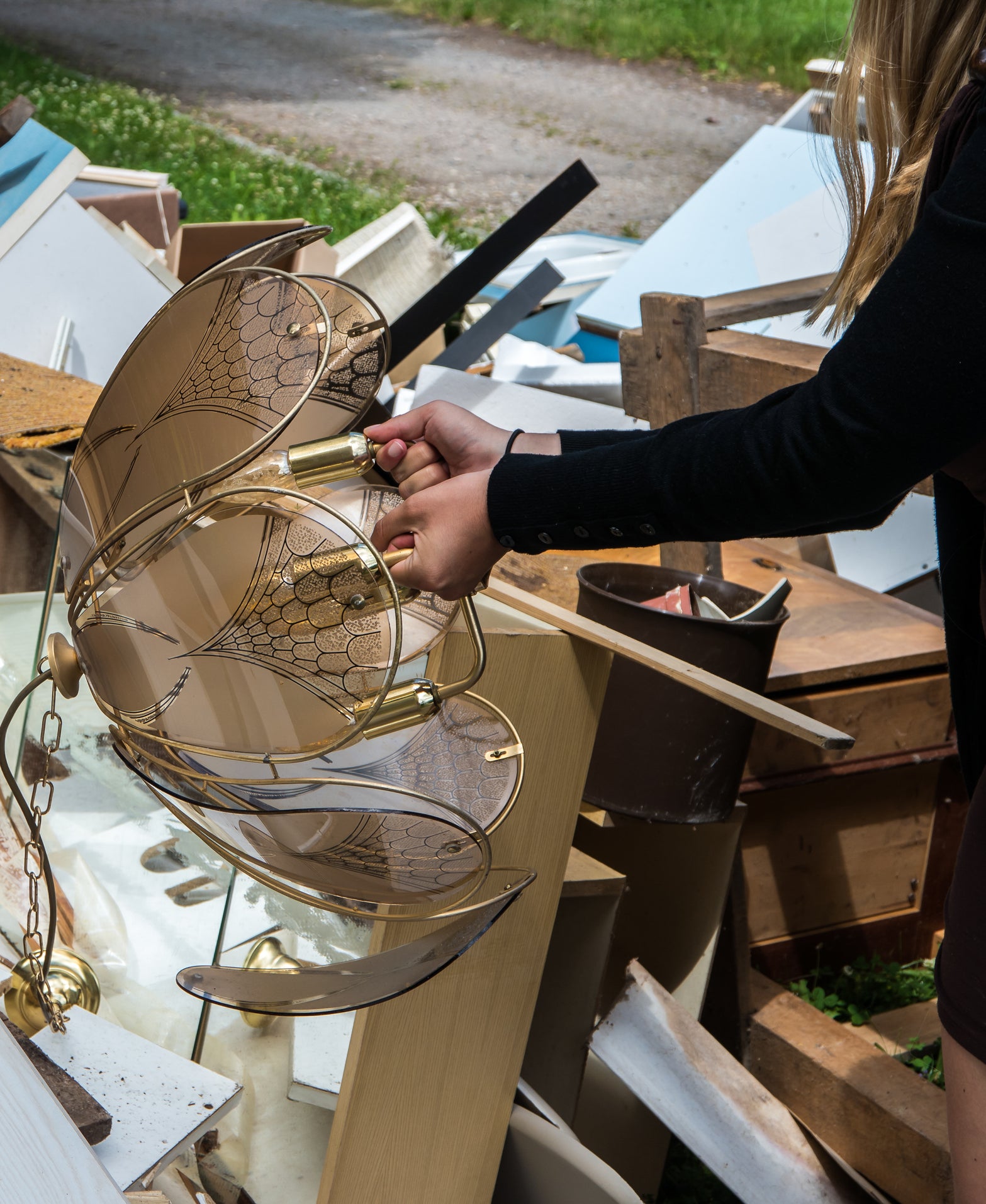
When you begin to see discarded stuff being hauled streetward, know that pickers—aka scavengers, salvagers, curb shoppers, scrappers, or gleaners—are not far behind. Store any belongings that aren’t up for grabs, like lawn mowers, lawn furniture, and bikes, or keep them far from the curb so there’s no confusion about which objects are actually on offer.
Show Some Compassion
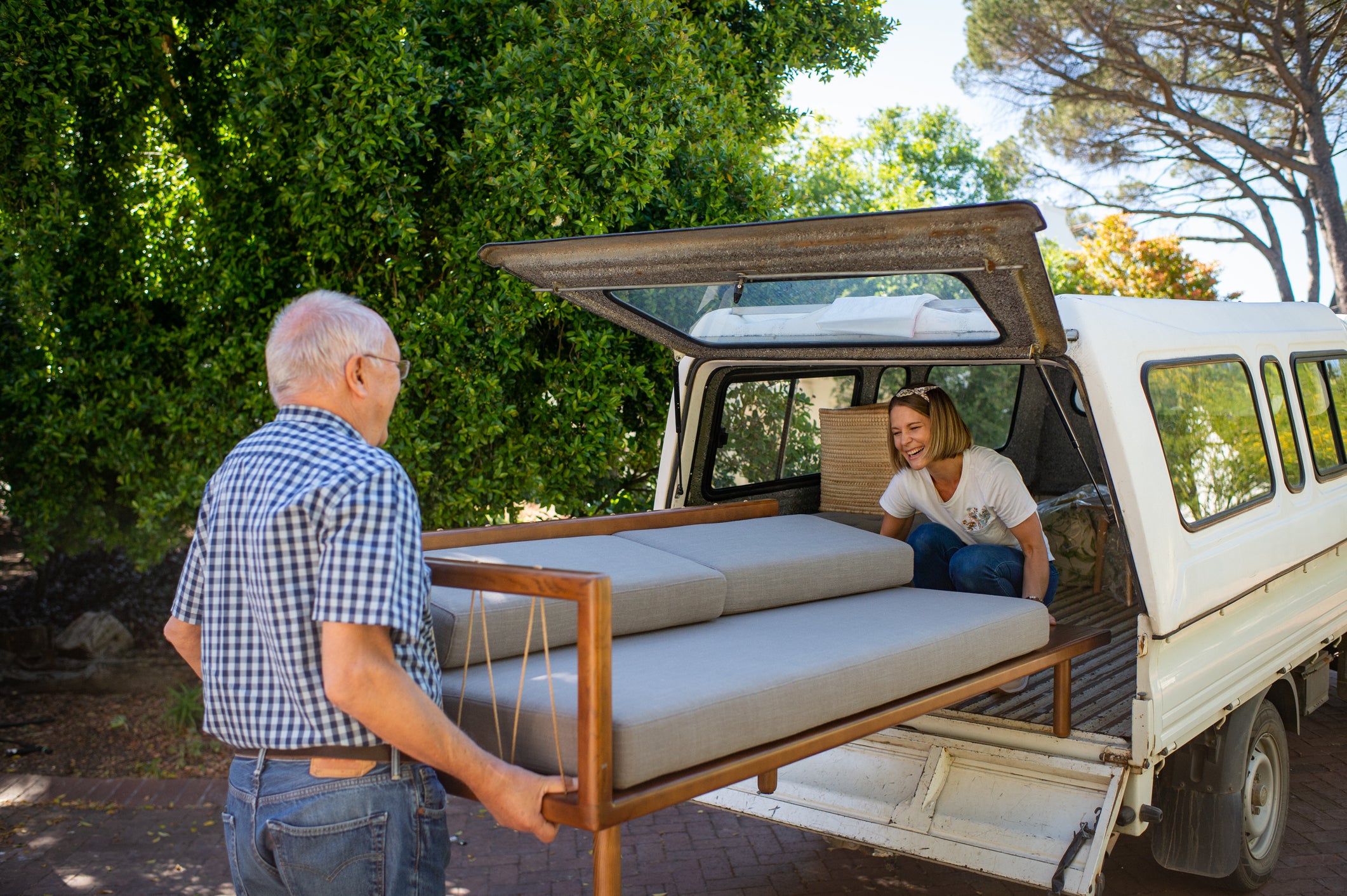
Sure, some of the folks who come to shop your street on curbside cleanup eve are well-off would-be HGTVers. But many of them make a living, or part of one, from salvaging, so treat them kindly. Don’t get upset or call authorities if someone’s on your property, looking through your soon-to-be-former property. Once you’ve put something out, you’ve relinquished the right to control who can have it.
To prevent a potential mess, consider leaving out some bags or cardboard boxes for pickers to use. It’s also courteous to label appliances or electronics that don’t work and items that are missing pieces. Most pickers expect your castoffs to be as-is and are prepared to repair, but not everyone wants to bother with broken things. Lastly, lend a hand, if you’re able and available.
Curbside Etiquette Is a Two-Way Street

Salvagers should act respectfully as well. If a discarded dresser or forsaken bread maker has caught your eye, pull your vehicle over and put on your hazards so you’re not blocking traffic or creating an unsafe situation. Don’t rummage carelessly, leaving a mess. Instead, place things to the side or put items back neatly after you’ve extracted your treasures. Don’t trespass or harangue homeowners with specific requests or get snippy about whether appliances still work. Lastly, if residents are on their porch or watching you through their window, give a friendly wave and a shout of thanks. After all, you’re both doing the planet a solid by making the most of bulk trash day.

I Was Dead Set On Stone Floors—Until I Saw These Options
See how a virtual floor designer might just change how you envision your floors, as it did for this editor with her ongoing kitchen renovation.